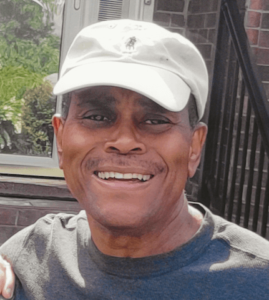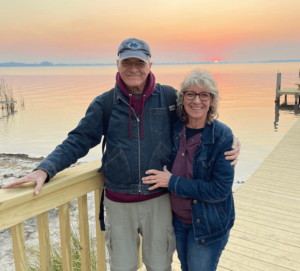When you read the title above, what does it make you think? I chose it very intentionally. I’d like to start with the definition of each word (my longtime readers will know how I love to look up words to get their full meaning!). Here is what my online dictionary said:
Stifling — Restrain (a reaction) or stop oneself from acting on an emotion
Prejudice — Preconceived opinion that is not based on reason or actual experience.
Dislike, hostility, or unjust behavior deriving from unfounded opinions
Much has been written about the impact of prejudice on those folks who are on the receiving end of it and it might be tempting to take “Stifling Prejudices” to mean how we can stifle our prejudices toward others. However, in this post, I’m actually more interested in exploring how our prejudices can be stifling to us. In other words, how do prejudices limit and constrain (stifle) the people who hold them?
When considering possible topics for a post, I will often share the idea with a variety of folks to get their reactions and possible feedback. One of the reactions when I shared this title caught me off guard.
“What about readers who don’t have prejudices?”
With very little thought I responded with, “Well, maybe they can glean something that will help them in dealing with someone who is acting in a prejudicial manner.”
Then I reflected on what I had just said and followed up with the question, “Do you believe there are any persons who don’t have some degree of prejudice?” If there are persons who don’t admit they have some level of prejudice in at least one area, then I expect I have a possible topic for my next post: denial!
I grew up in a very small town in the hard coal region of Schuylkill County, Pennsylvania, where I was handed a full basket of prejudices—I didn’t even begin to realize how full until I was into early adulthood! Both of my parents had their own set of biases and preconceptions, some of which I don’t fully understand the origins of to this day.
Sometimes by happenstance and more often, over time, by my own decisions, I found myself in situations that caused me to begin challenging some of the unfounded judgements and prejudices I had been carrying around for years.
For instance, after I left Schuylkill Country and spent time in the presence of—and more importantly, in relationship with—folks of color, it became quite clear that there was absolutely no supporting evidence for the prejudicial information about race I had been given.

My good friend Bill
One of my closest friends is Black. I’ve known Bill since my college days and he is godfather to our oldest son. I can’t begin to explain all the blessings that relationship has brought me—most recently, he has introduced me to a men’s group that has been an utterly unique and fascinating experience.
I have also shared in past posts my mother’s directive to never date a Catholic. Coming from one of the most loving people I have ever met, this dictate always confused me. Luckily (as was often the case!) I obviously didn’t do what I was told! Had I accepted that narrow-minded decree I would have missed out on the most amazing gift in my entire life journey, my amazing wife Rita!
Thankfully, I confronted both of these prejudices fairly early in life. But I’ve discovered that after we manage to own and then work through some of our major prejudices, one of the traps that we can fall into is becoming convinced we are no longer prejudiced! However, believing we are prejudice-free usually just means we need to begin looking even closer at our everyday responses and reactions to the people and events we encounter on a daily basis.
Fortunately, this Sneaky God I find myself wanting to spend more and more time with doesn’t waste time in judging us and can’t spell prejudice! But despite my sincere attempts to do the same, I know I’ve still got prejudices bouncing around in my knot that I haven’t been able to dislodge yet. It’s harder to open up about those than ones I got over decades ago.
One of my close friends who faithfully reads my monthly post recently asked, “Don’t you feel awkward or embarrassed at times airing your dirty laundry, especially to folks you don’t know?”
I thought seriously about her question and then said, “I hadn’t thought about it much before, but I wonder how helpful it would be if I scrubbed up everything first before sharing it?”
A few days later she called back and said, “I have been thinking about your response to my question and I think the reason I look forward to reading your post each month is because you don’t scrub it up!”
So, even though it is embarrassing to admit them, here are two “unscrubbed-up” prejudices I am currently attempting to get a handle on!
The first is my prejudice against fancy cars—or more accurately, the people who drive them. I have a pattern of making a sarcastic comment if an expensive car cuts us off or in any way gives me an excuse to say something along the lines of, “big car, big money, big entitlement!”
This has gone on for so long that Rita will often point out instances that contradict my prejudices, such as, “Isn’t that unusual, that Mercedes let us in line,” or after an older model Honda butted in front of us, “I bet they have a BMW at home in the garage!” (Rita has a humorous side which she often employs to help point out my growing edges!)
It’s quite interesting that we tend to recognize and acknowledge those instances that support our negative prejudices—even if they are rare—while conveniently ignoring or discounting those that clearly point out the inaccuracy of our self-created and destructive prejudices.
As I tried to uncover the origins of this particular prejudice, I remembered my father attempting to put aside enough money for several years to buy a used car. Eventually he located a well-used Hudson that he could purchase with the money he had been saving. About that same time, he learned that neighbors in our small town just purchased a brand-new car when they had never paid back the money that my grandfather had credited them in his store during the war so they could buy groceries.

Terry and Rita
I think seeing this person driving the new car while he struggled to keep the old Hudson on the road left my father somewhat resentful, not a quality that was typical of him. In his early eighties, he finally bought his dream car, a used Cadillac Eldorado which was his pride and joy until he gave up driving in his early nineties! I think that experience may have helped him let go of the resentment he’d been carrying, but by then it was firmly established in me and I’ve had to make my own journey toward healing.
Another very subtle prejudice that is embarrassing for me to put in print is my attitude toward tattoos. I have no idea how this totally nonsensical prejudice got started, but it raises its nasty head in a variety of ways. For example, at times it will cause me to pre-judge a person at some level in a business transaction.
During this recent cold snap, I went to start our car and the battery was completely dead. I called AAA and rather quickly a young man showed up in a tow truck. What I immediately focused on was his tattoos. Because he was dressed for cold weather, the only skin showing was his face, but it was covered in various tattoos, including what appeared to be political statements!
My first thought was, This is not going to be good!
To my complete surprise (and chagrin), it was just the opposite!
When I forgot where the latch to open the hood was, he handled that embarrassing moment without projecting any judgment at all toward me. He then checked the battery and started our car, while sensitively explaining why it happened (not starting it up during several days of very cold weather), and assuring me I didn’t need to invest in a new battery, instead suggesting I run it briefly on a more regular basis during these extended below-freezing days.
This young man was so polite, sensitive, and understanding that it forced me to reexamine my unfounded judgmental prejudice. I was so impressed I never even took the time or made an effort to read the words he had tattooed on his face. That realization in itself spoke volumes to me!

Do you have a different reaction to the man in these pictures? If so, maybe you share my prejudice against tattoos!
I decided to research the name of the company he was employed with and called the following day. (I seldom take the time to do this but that needs to change!) I asked to speak with the manager or owner and the gentleman on the other end said, “you are talking with both!”
I explained what I had experienced and how appreciative I was. He thanked me for taking the time to call and went on to explain that when customers do give him feedback about this young man it is always similar to what I shared with him. I wonder how many of them expected that level of helpfulness and professionalism when they first saw him!
There is no question whether the victims of prejudice experience hurt, isolation, and negative messages about themselves that they may internalize and incorporate into their sense of identity—and their trauma and suffering is absolutely my principal concern.
However, there is also a large—if often overlooked— harmful and stifling impact on the person holding the prejudice. Prejudgments can shut down possibilities, raise emotional walls between people, and keep up stuck in negative stories from our past. There are probably even more ways it affects us that we don’t even see or understand.
I am in the process of developing a list of all the ways my prejudices have had a stifling effect on me and it’s growing all the time! If you have found this post at all challenging and are willing to start your own list, please share your discoveries—or any other insights on this topic—in our comments section or consider sending them directly to me at tliebcounseling@gmail.com if you prefer.
I look forward to sharing this journey with you!
QUESTIONS FOR DEEPENING THE SPIRITUAL JOURNEY
- What prejudices did you grow up around? How did that affect you? Do you still carry the biases you inherited?
- What has helped you shed your preconceptions?
- How hard do you work to look for evidence that contradicts or disconfirms your expectations? If you meet someone who doesn’t conform to your stereotypes, do you simply decide they are an “exception to the rule” or does it make you question the “rule” itself?
- What prejudices do you currently carry? This can include the prejudices we hear about a lot (race, religion, gender identity/sexual orientation, etc.) but also education level, income, weight, age, appearance, and even preferences in music, clothes, or sports teams—anything that causes you to prejudge someone instead of getting to know them as an individual.
- Are you actively working on those prejudices? If so, how is that going and what kind of successes and obstacles have you encountered? If you aren’t working on eliminating your prejudices, what is holding you back?
- What do you believe the possible negative consequences of prejudice are for the person who holds it (not its target)? Have you had relevant personal experience with this?
- How do you think addressing your prejudices fits into your spiritual journey? How do you believe God views prejudice?

